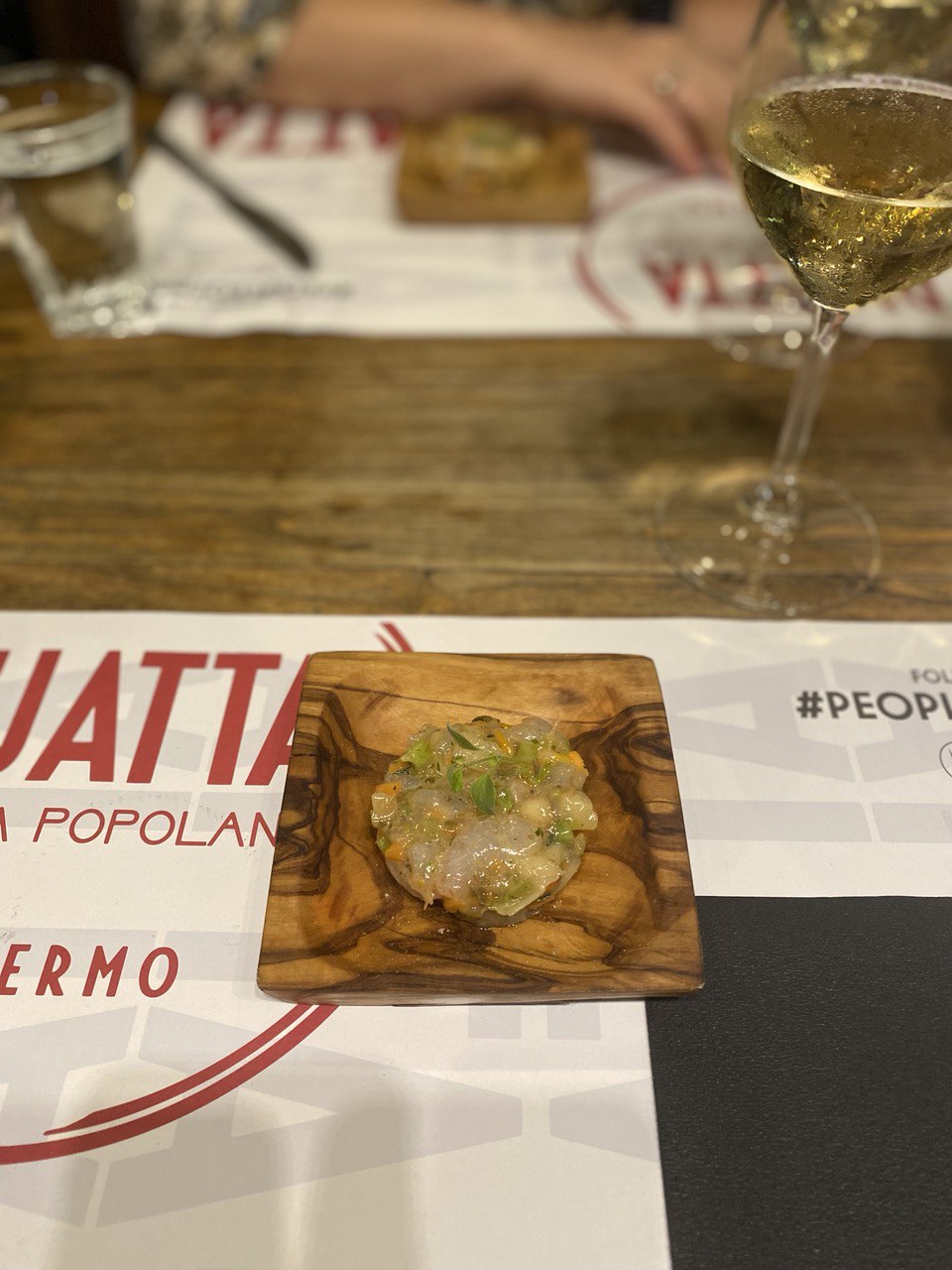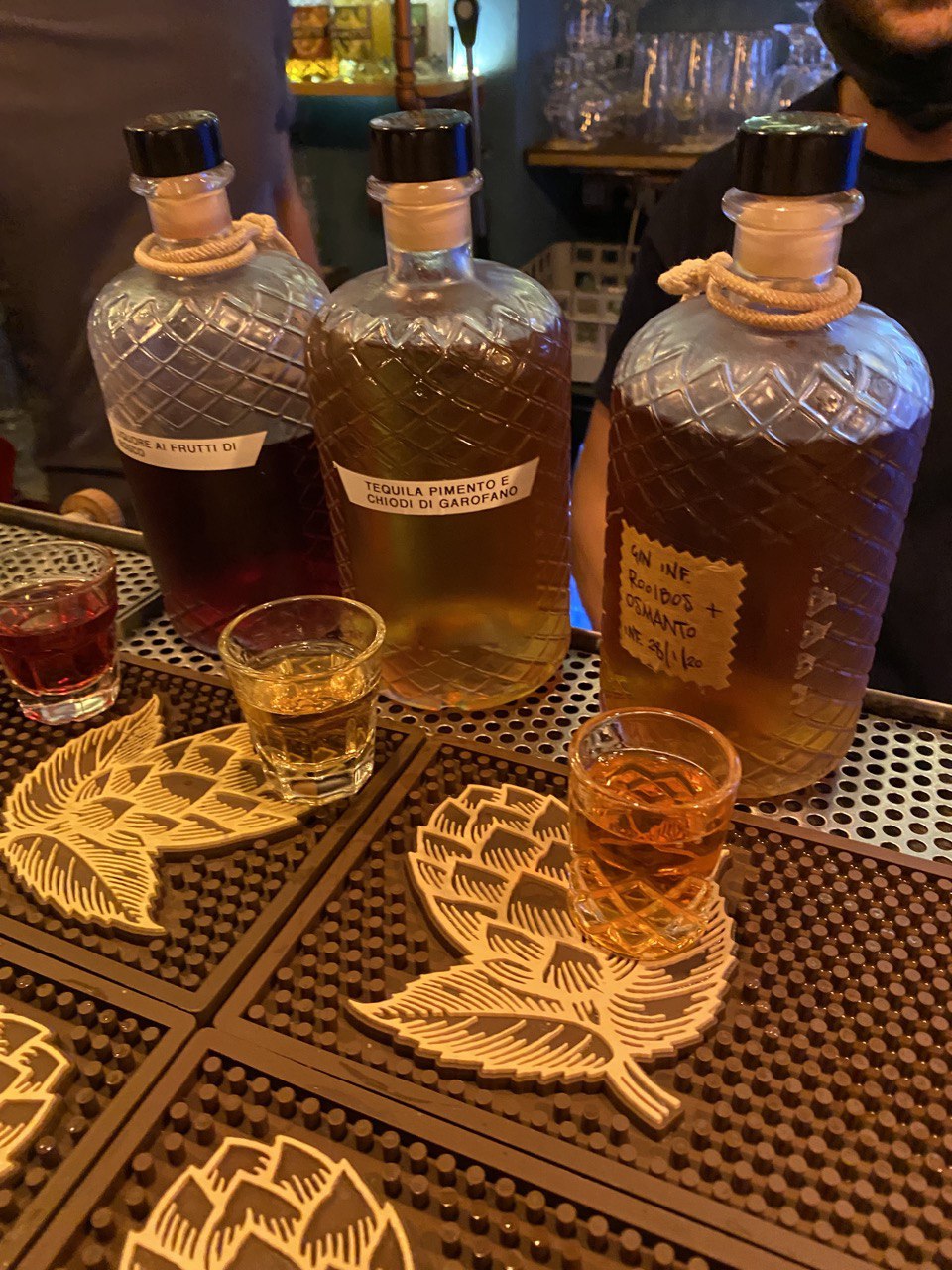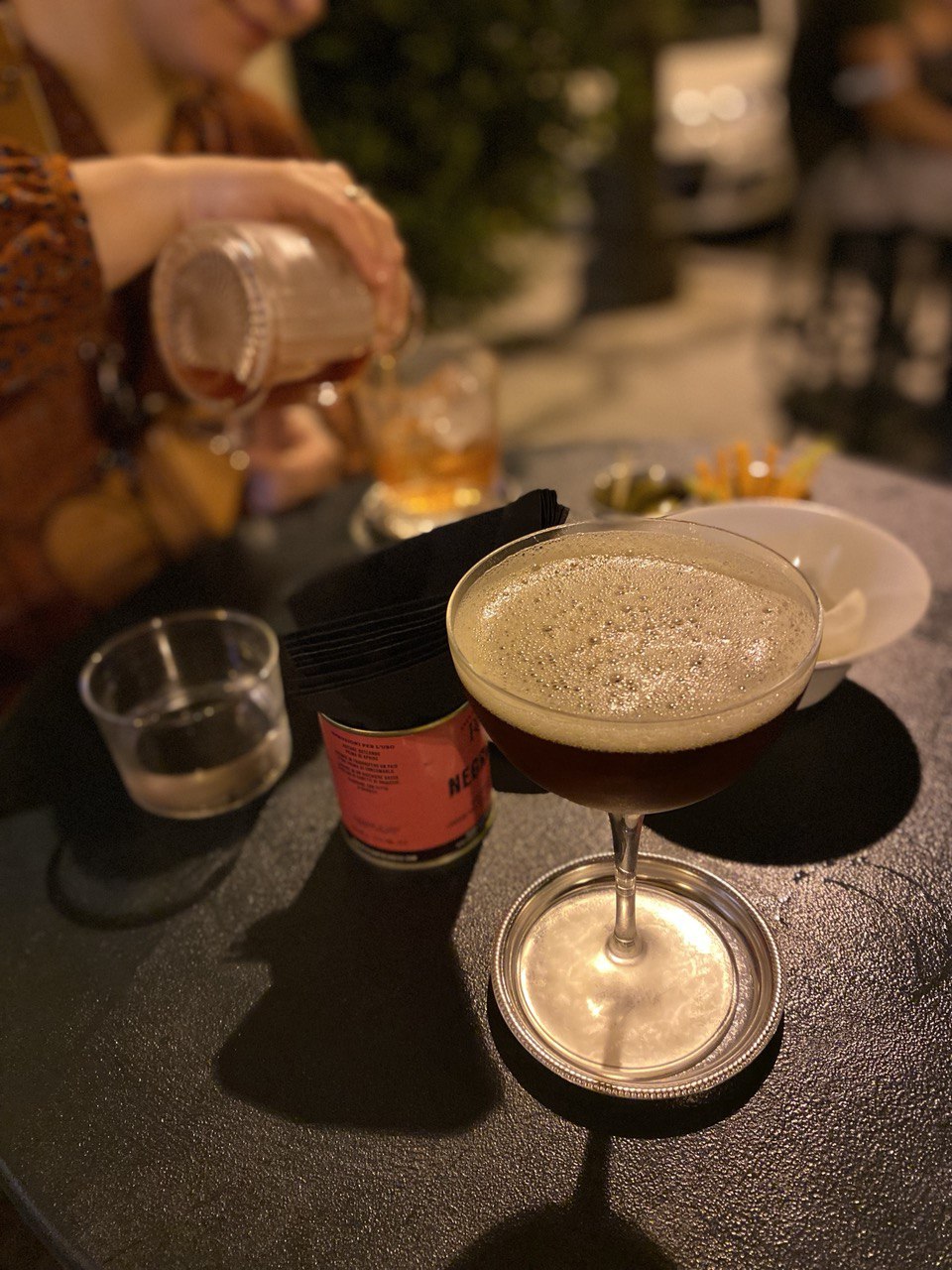Tuesday Triage #64
- TUESDAY TRIAGE #64 by Vadim Drobinin
- On natural wines
- Things I enjoyed reading
- 1. Jony Ive on What He Misses Most About Steve Jobs by Jony Ive
- 2. Confessions of a Michelin Inspector by luxeat
- 3. The big alcohol study that didn't happen by @dynomight7
- 4. Are You Hydro-Phobic? by Richard DeGrandpre
- 5. I Tried 30 Mustards This Summer by @imjasondiamond
- 6. The Secret Society of Lightning Strike Survivors by @James_L_Walker
- 7. 'Cottagecore' and the rise of the modern rural fantasy by Anita Rao Kashi
- 8. The Act of Smelling by Jude Stewart
- 9. When users never use the features they asked for by @austinzhenley
- 10. What a Crossword AI Reveals About Humans' Way With Words by Ben Zimmer
- Things I didn't know last Tuesday
- 1. Studies Say That SpongeBob Is Messing With Kids’ Brains
- 2. The Cornhill Devils
- 3. Man who invented the high five in 1980s
- 4. The London Horse Depository
- 5. Brasidas from Sparta
- 6. Overnight fasting could extend lifespan
- 7. Cavendish banana
- 8. A day on Venus is a little longer than a year on Venus
- 9. Nutty Putty
- 10. Problems of comparing cathedrals after year 1100
- Book of the week
- Thank you and see you in a week!
TUESDAY TRIAGE #64
by Vadim Drobinin ¶
Your weekly crème de la crème of the Internet is here!
05.10.2021 (read in browser)
-
Intro
Whatever is on my mind this week. -
Things I enjoyed reading
Ten-ish articles I found worth reading. -
Things I didn't know last Tuesday
Ten-ish facts I didn't know when I wrote the previous edition. -
Book of the week
Some thoughts on the latest book I've read.
On natural wines ¶
I am back home and so far the calendar looks exceptionally busy.
Remember that time when I complained about being busy? Well scratch that, the records are there to be broken.
Looking back at the trip, I am rather proud of myself for a few things, from being absent of social networks for a while to pushing the boundaries of my comfort zone and sending the previous version of the newsletter without a computer and partly under influence of Sicilian wine.
The latter actually is a pleasant surprise.
I am obviously a man of culture, and yet wine was never my strongest trait.
I grew up to like classics with a single exception of South African Pinotage. Italian wines are classic, but it’s never about Sicily: instead we know wines from Veneto and Piedmont.
Sicily is more New World. Lots of small wineries and unknown names, proud of their heritage and lack of corporations behind them.
Organic, natural, and biodynamic wines.
In the rest of the world this is usually marketing bullshit, meant to sell mediocre wine better. Here it’s their pride.
We also had more tasting sets here and there, and some of the dishes were mind blowing.
Think pickled cactus, for example:

Or mango mousse with black olives ice cream.

Or raw prawns.

Or homemade (barmade?) gin infusion with osmanthus and roiboos.

Or this Martinez, not stirred but poured between tins to create higher aeration but maintain the same dilution.

As you could guess, it was quite a refreshing trip.
Looking forward to many more!
Things I enjoyed reading ¶
1. Jony Ive on What He Misses Most About Steve Jobs by Jony Ive ¶
It's hard to believe that this week is that kind of the anniversary.
Ten years ago I wasn't involved in iOS development as much as I am today, and yet I was still quite fascinated by Apple and its main character. The day the news broke was a grim one indeed.
Ideas are fragile. If they were resolved, they would not be ideas, they would be products. It takes determined effort not to be consumed by the problems of a new idea. Problems are easy to articulate and understand, and they take the oxygen. Steve focused on the actual ideas, however partial and unlikely.
I had thought that by now there would be reassuring comfort in the memory of my best friend and creative partner, and of his extraordinary vision.
Jony Ive never said much but it wasn't a secret how close of a friend he was to Steve Jobs, hence the exceptional value of his thoughts here.
2. Confessions of a Michelin Inspector by luxeat ¶
Lots of interesting facts about being a Michelin Inspector. I always thought of it as a dream job, but it actually is not as simple as you might think.
Yes, you get to eat lots of food at the company's expense, all while travelling the world, but apparently travelling so often is very exhausting, while the majority of restaurants you visit are quite far from Michelin standards.
Two stars is a step up, you are looking for more complexity in a dish. You’re looking for sometimes multiple ingredients, or techniques that are very difficult to do: make something that is incredibly complex, but that looks incredibly simple. Taste and balance. I look at the difference between the sauce of a one-star dish and the sauce of a two star dish. Nothing is ever written in stone.
When you or I go for dinner, the difference between a one-star dish and two-star dish, when you look at it, you can look at the plate and say wow! At one star you don’t necessarily say that.
Secondly, saucewise, when you taste the sauce at a one star, it should be deep, clearly identified taste, good flavour, umami. In a two star dish, it should have multilayers, you should be tasting different components, there should be an aftertaste, which was not there in perhaps the one star dish.
The insights on what defines a restaurants are quite eye-opening too. I always thought the difference is in techniques or service, but seems like it's not as important as complexity of flavours.
3. The big alcohol study that didn't happen by @dynomight7 ¶
There is nothing surprising in alcohol being bad for health, but somehow no one really researched if there is safe threshold.
So we don’t know if moderate drinking is bad for you. It almost certainly causes harms like cancer, but it might help heart disease enough to offset those harms. In the US, around 20% of adults drink 1-2 drinks per day. Even if the effects are modest, the collective impact is huge. Second perhaps to caffeine, alcohol is humanity’s favorite drug. We need to know what it does.
At the same time, here in the UK there are units that define the amount of alcohol, and there is a recommended maximum allowance of those. The didn't pick it randomly, did they?
4. Are You Hydro-Phobic? by Richard DeGrandpre ¶
I am not a big fan of plants (I mostly prefer to eat them, not to care for them), but I always thought of watering as the most complex part of growing anything. I don't really buy all this guidance about humidity or shadow, but underwatered plants are a nightmare.
At some point I even made an automated watering system for my pepper plants, but its maintanance in fact proved to be more complicated then literally any other option.
Let’s begin with the assumptions many people make. We are neither botanists nor soil scientists, so when we’re confronted with the simple task of watering our plants we use common sense. As humans we get thirsty and being thirsty is no fun at all. Plus we know that, whether thirsty or not, having an extra drink of clean water never hurt anyone. Applied to plants, we thus arrive at the following, better-safe-than-sorry approach: when in doubt, pour it out.
Seems like getting back to automated science might still be a good idea.
5. I Tried 30 Mustards This Summer by @imjasondiamond ¶
What a life: spend a few months sampling a few dozens of mustards.
I don't really remember myself eating much mustard in the childhood. My father would usually keep a tub (aking to the toothpaste tub) in the fridge, but it was extremelly harsh mustard, and I started to acquire the taste for it only at the university, using it as a spread for some sandwiches.
I noticed while looking through my stock that I’d even forsaken the spicy Russian mustard I remember seeing around my house growing up. So I decided to go on a quest, one that would take me nearly an entire summer and alienate me from my wife and loved ones for a period of the day because, well, mustard smells. I wanted to not only try every mustard on Beard’s list, but also build my own similar one.
Would be lots of fun to try and sample at least the best ones mentioned by the author. I do wonder how they would perform against my childhood nemesis.
6. The Secret Society of Lightning Strike Survivors by @James_L_Walker ¶
These days there are secret societies for pretty much anything, although lightning strikes sounds oddly specific.
Many couples have something — a first date, a first kiss, a first holiday — that marks a watershed moment in their relationship. For Shana and Don, it was their first thunderstorm. Outside, on the front porch, Shana watched as dark rumbling clouds approached. Her joints started to ache and her chest tightened. Don took her hand and led her inside without saying a word.
However comparing to many, this one actually does something good, and provides people with support, which is why secret societies were invented in the first place (these days that's pretty much forgotten).
7. 'Cottagecore' and the rise of the modern rural fantasy by Anita Rao Kashi ¶
I won't lie: the last two years made me think about moving to the middle of nowhere and this idea is still not burried. Apparently I am not alone:
At its heart, cottagecore hinges heavily on modern escapist fantasies, and posts are full of foraged mushrooms, long billowy dresses, gingham tablecloths, baskets of wildflowers, sourdough bread and mossy terrariums. There are babbling brooks surrounded by woodland, snails, beeswax candle-making, delicate doilies, farm animals, forest bathing and rustic simplicity.
The article also mentions that people moving to rural areas enjoy sewing and cooking, so I feel like our household would fit in well.
8. The Act of Smelling by Jude Stewart ¶
Despite quite a few books read on the topic, the mechanics of smell continue to fascinate me.
Petrichor emanates from millions of raindrops falling all at once, giving this smell a stereoscopic quality. In 2015, a team of MIT scientists determined how petrichor reaches our noses. Using high-speed cameras, they observed that when a raindrop hits a porous surface, it traps tiny air bubbles at the point of contact. In a slow-motion video, you can see a raindrop hitting a surface. The drop briefly assumes a doughnut shape, then flattens into a disk. Infinitesimal droplets rise from the disk like fireflies buzzing over a lake. Those droplets lift petrichor from the soil, infusing the air.
I approach it from a more pragmatic perspective though. Smells give us a powerful tool when it comes to food and drinks: cocktails are often defined by how they smell, not what they contain.
So being able to manipulate smells opens up a world full of wonderful possibilities.
9. When users never use the features they asked for by @austinzhenley ¶
An interesting story on the edge between development and product management.
I conducted a small lab study to again see how people were conducting code reviews. But I also asked them to do a code review using my tool. I gave them almost no instructions on how to use it. I watched step by step.
I emailed the few developers that had originally used my tool to try to start a conversation about their thoughts on the tool.
The feedback loop in building process is probably the single most overlooked issue for many of us, and talking to users is the only way to understand more about the problem we as developers (or product owners) face.
Otherwise it is akin to walking in a night forest with a constantly dying off candle.
10. What a Crossword AI Reveals About Humans' Way With Words by Ben Zimmer ¶
A cool mix of linguistics, machine learning, and one's hobbies led to a bot capable of solving crosswords (without googling obviously).
I never enjoyed solving them myself, but always thought these kinds of tasks are nearly impossible to solve with the modern hardware.
The crossword solver is a closed system—it can’t just Google the answers. As a result, there are gaps in its knowledge base. In this regard, too, the program mimics our own imperfect mental capacities, even if its storage and processing speed dwarfs puny human brains. The clue “Poet who wrote ‘Jellicle Cats are merry and bright’” (5 letters) might be obvious to fans of T.S. Eliot, but Dr. Fill initially liked KEATS and YEATS ahead of ELIOT as the poet in question. (Since the Berkeley team’s clue-solving system employs a “black box” approach rather than something more interpretable after the fact, it can be difficult to say why it favors one poet or another.)
Seems like I was wrong.
Things I didn't know last Tuesday ¶
1. Studies Say That SpongeBob Is Messing With Kids’ Brains ¶
I didn't watch much of it in my childhood, and probably that was a good idea:
According to a 2011 study from the University of Virginia, SpongeBob is messing with the memory retention of children, impairing their “readiness for learning.” Findings show that allowing preschoolers to watch the series causes short-term disruptions in mental function and attention span due to frequent camera cut scenes.
How did they come up with the study's topic? Did people come complaining about those "side-effects"?
So many questions.
2. The Cornhill Devils ¶
A nice part of London's architecture:
The “Cornhill Devils,” according to legend, came as a rather unholy finishing touch to the completed building. A parting gesture of sorts from the architect to the clergyman next door.

Almost every second building here has unusual statues or structure, especially in the city centre. I wonder what else am I missing if not looking up at buildings?
3. Man who invented the high five in 1980s ¶
I kind of expected the high five to be as eternal the humanity itself.
The men of The Five often gathered at the Sleets home when Lamont Jr. was a toddler. They'd blow through the front door doing their signature greeting: arm straight up, five fingers spread, grunting "Five." Lamont Jr. loved to jump up and slap his tiny palms against their larger ones. "Hi, Five!" he'd yell, unable to keep all their names straight. Years later, Sleets started high-fiving his Murray State teammates, and when the Racers played away games, other teams followed.
In fact it's only half a century old. What did people do before?
4. The London Horse Depository ¶
A fun story about a place I used to work close to:
Of course, the horses also needed places to stay, and where better than 277 Gray’s Inn Road, which started its modern life around 1827 as the rather unromantically named North London Horse Depository? It was rather a grand building (main image) for its purpose, though one patronising critic dismissed it as a “large courtyard, treated in stucco with some architectural pretension”.
This is the beauty of old Roman cities: they mature through centuries and have proper stories to tell.
5. Brasidas from Sparta ¶
In addition to the famous 300 Spartans, there were more, including thi dude who escaped the massacre but didn't make it into the legends.
Take the mostly forgotten general, Brasidas, who, instead of embracing death on the battlefield, was careful to survive and learn from his mistakes. Homer may have hailed Odysseus as the cleverest of the Greeks, but Brasidas was a close second.
Can't blame him to be honest.
6. Overnight fasting could extend lifespan ¶
I very rarely eat at night but if you have such habit consider extending your life instead:
A feeding schedule of prolonged overnight fasting periods extends healthy lifespan in fruit flies by promoting night-time autophagy, a process in which material in cells is degraded and recycled.
Worth mentioning that it wasn't researched on humans yet.
7. Cavendish banana ¶
Apparently almost all bananas in the world are of the same variety, and it's slowly going extinct so the scientists are panicking and trying to find the cure.
Ninety-nine percent of bananas exported to developed countries are just one group called the Cavendish. And the Cavendish is vulnerable to Tropical Race 4, or Panama disease, a fungus that's now ravaging banana farms across the globe.
Something similar happend to French grapes years back, and led to Napa valley in the USA becoming the only producer of original Bordeaux grapes. Can't really imagine same working out well with bananas though.
8. A day on Venus is a little longer than a year on Venus ¶
I didn't even consider it is possible, but now thinking about it, days and years actually do belong to different categories and are not related to each other. So a month is some amount of days. But a year is not about a fixed amount of days, it's about a circle around the Sun, so a day could be longer than a year indeed.
Venus is unusual because it spins the opposite direction of Earth and most other planets. And its rotation is very slow. It takes about 243 Earth days to spin around just once. Because it's so close to the Sun, a year goes by fast. It takes 225 Earth days for Venus to go all the way around the Sun. That means that a day on Venus is a little longer than a year on Venus.
If that were to happen on Earth, we'd start every morning in Winter and finish in Automn.
9. Nutty Putty ¶
My new nightmare: a cave where someone got stuck upside down, and rescue teams didn't manage to take them out so just poured concrete on top and closed the entrance.
Caver Dale Green discovered Nutty Putty in 1960 and named it after the clay he found in much of its 1,400 feet of chutes and tunnels. Hot rising water formed the ancient fissure, and the still-humid air is slowly but constantly degrading the rock.
The article shares interviews and memories of the rescue team members and is quite heartbreaking.
10. Problems of comparing cathedrals after year 1100 ¶
There are plenty of cathedrals in the world, and many of them are here in the UK. People make rankings on those, and surprisingly (maybe not actually) UK is doing quite well when it comes to the size.
Why stop at 1100? Because the picture becomes too complicated to be a linear parade, from having to consider the extensions of Canterbury and York, through some very uncertain east ends (Hereford, Exeter) and then some where the plan is practically unknown (Lichfield, Coventry).
I still remember our trip to Ely where the cathedral was easily the biggest part of the city.
Book of the week ¶
Since my great experience with McConaughey’s autobiography I thought of other people whose thinking process inspires me, and picked up Trevor Noah’s memoirs Born a crime:
Living with my mom, I saw how she used language to cross boundaries, handle situations, navigate the world. We were in a shop once, and the shopkeeper, right in front of us, turned to his security guard and said, in Afrikaans, “Volg daai swartes, netnou steel hulle iets.” “Follow those blacks in case they steal something.”
My mother turned around and said, in beautiful, fluent Afrikaans, “Hoekom volg jy nie daai swartes sodat jy hulle kan help kry waarna hulle soek nie?” “Why don’t you follow these blacks so you can help them find what they’re looking for?
“Ag, jammer!” he said, apologizing in Afrikaans. Then—and this was the funny thing—he didn’t apologize for being racist; he merely apologized for aiming his racism at us. “Oh, I’m so sorry,” he said. “I thought you were like the other blacks. You know how they love to steal.”
Trevor is probably the first comic I honestly enjoyed during the last decade. There are way more famous names, that’s for sure, but somehow I was never a big fan of their jokes.
These ones, on the contrary, are less funny but more honest.
Great storytelling takes way more than a ridiculous situation.
Storytelling wakes more emotions than laughter, and stays for way longer after the show.
Hopefully it works with this newsletter too.
Thank you and see you in a week! ¶
If you have any questions, or want to suggest a link for the next newsletter, please drop me a message on Twitter or reply to this email.
Cheers! 🍸